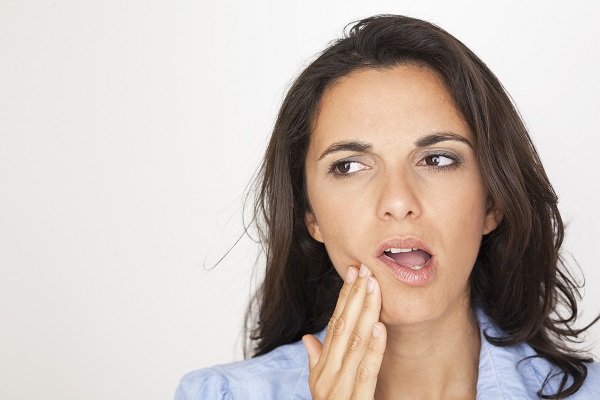How a Dentist Can Help Your Bruxism

Bruxism is a disorder in which an individual clenches their jaw or grinds the teeth excessively. These actions often occur during sleep but can also take place while awake. Chronic grinding can damage teeth and lead to a variety of health issues. However, a dentist can provide treatment options that protect the teeth from harm.
Bruxism overview
Occasional clenching and grinding do not typically cause injury to teeth. If a patient has severe teeth grinding, it can cause a multitude of dental problems.
Signs and symptoms
During a dental appointment, the dentist can evaluate the mouth and jaw for signs for bruxism. The dentist will check for an abnormal bite and may take X-rays of teeth. Many people do not realize there is an issue until they begin to experience symptoms. Signs of bruxism include the following:
- Waking up with a sore or stiff jaw
- Tension headaches near the temples
- Facial pain
- Earaches
- Flattened teeth
- Sensitive teeth
- Gum recession
Associated dental issues
When left untreated, bruxism can cause dental issues beyond pain. Grinding can wear down the outer layer of the tooth and make it more susceptible to decay and cavities. The tooth may become chipped, broken or discolored. These extreme forces exerted on the teeth can also aggravate the jaw muscles and lead to the development of a temporomandibular disorder.
Causes and risk factors
People may develop bruxism if the teeth are misaligned. A missing tooth can also cause teeth grinding because it negatively affects the balance of the bite.
There are several factors that can increase the likelihood of bruxism. Teeth grinding is more common in young children, especially if they are hyperactive. People who are anxious or aggressive are more likely to experience grinding and jaw clenching. Other factors that increase grinding include smoking, alcohol use and drinking caffeine.
Treatment options
A dentist will recommend treatment for bruxism based on the severity of the side effects and when the actions are taking place. Sleep-related grinding is harder to control.
Medications
Medications, such as muscle relaxers, and can be used to reduce the stress put on the jaw and its muscles when teeth are repeatedly rubbed together. Non-steroidal anti-inflammatory drugs, such as ibuprofen, can reduce swelling and pain. Botox® is another option used to help reduce muscle tightness and decrease wear and teeth on teeth.
Oral appliances
The dentist may suggest the use of a removable bite splint or mouth guard at night. These appliances create a barrier between the upper and lower teeth to prevent damage. Bite splints are formed from hard plastic and custom-fitted to the teeth, making them last longer than mouth guards.
Dental restorations
If the cause of grinding stems from a missing tooth gap, the dentist can use a dental implant or bridge. Both options correct bite alignment and reduce the chances that other teeth will shift.
Conclusion
Bruxism can lead to pain and dental health complications, but there are many options for treatment. It is important to have an evaluation with a dentist to discuss the signs when the disorder is first suspected.
Request an appointment here: https://drdelucia.com or call Anthony DeLucia D.D.S., P.A. at (772) 492-7045 for an appointment in our Stuart office.
Check out what others are saying about our dental services on Yelp: TMJ Dentist in Stuart, FL.
Related Posts
A TMJ dentist is a dental professional who spends their days diagnosing and treating disorders that are related to the temporomandibular joint. This joint acts as a sliding hinge by connecting the jaw to the rest of the skull. Unfortunately, it can malfunction, which typically results in discomfort and dysfunction of the entire jaw.Thankfully, TMJ…
TMJ disorder is a serious condition that you should keep an eye on. Your dentist can check for signs and symptoms of this disorder. There are also treatments available to give you the relief you need. However, you do not need to wait to go to the dentist’s office to know that you have problems…
Do you suffer from a TMJ disorder, and are you looking for a TMJ dentist? Individuals can start by seeing their primary general dentist, who has training on the temporomandibular joint and how it affects one's dental health, including the jaw and entire skull.In order to utilize the services of a TMJ dentist, it is…
Temporomandibular joint disorder or TMJ disorder refers to a condition that affects the muscles, ligaments, and joints surrounding the jaw. The TMJ is a ball and socket hinge that uses sliding and hinging motions to function. The joint is at the back of the jaw and includes a bony bump called the articular eminence. The…
